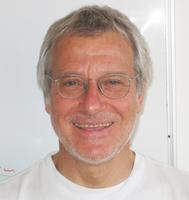Sensitivity-Based Design Methods Achieving Improved Control Performance
David Bensoussan – École de technologie supérieure, Canada

A new control method [1] of unstable and invertible plants has been shown to be outperforming regular H2 , H∞ and μ-synthesis controllers. It has been applied to a levitation system [2] and to the control of a drone. Simulation has also been done on a satellite antenna controller with satisfying results. This sensitivity-based design method has been extended to multivariable unstable and invertible plants which are ultimately (i.e. at high frequencies) diagonally dominant and achieves decentralized control. Simple interactive design methods have been developed on the GeoGebra platform so as to achieve superior performance in the time domain and in the frequency domain. This new control method has been extended the field of Adaptive control. We will focus on the L1 Adaptive method and propose alternative architectures which improve time and frequency performances, including the attenuation of both input plant perturbation and output additive external disturbances.
Bio: Dr. David Bensoussan of Quebec holds a PhD in Electrical Engineering from McGill University. He has been a professor in the Department of Electrical Engineering at the École de technologie supérieure de l'Université du Québec since 1980. He has published extensively in the telecommunications and energy fields and has filed a large number of patents.
[1] Bensoussan David, Robust and Ultrafast Response Compensator for Unstable Invertible Plants, Automatica, Volume 60, Octobre 2015 pp. 43-47, 2015
[2] https://youtu.be/FZ7WyYFn7_0




Location
Montréal Québec
Canada